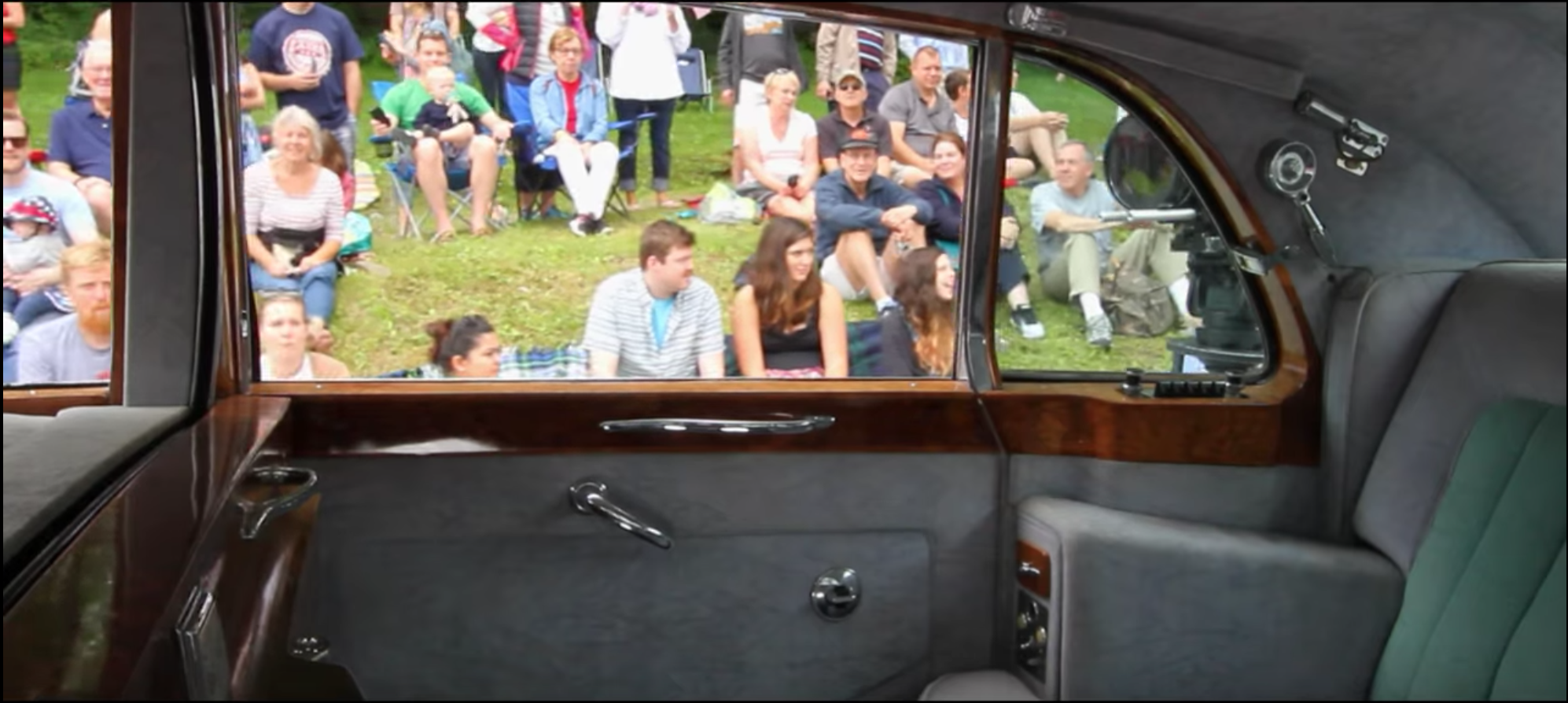Review movies for a Memphis publication, and you’re going to watch more than your share of Elvis flicks. Most of them either walk through the basic facts of his life and career from a certain, allegedly novel point of view, or take a specific incident and dramatize it or explore it for meaning.

The view from Elvis’ Rolls Royce in The King.
But The King is unlike any Elvis documentary, in that it is not really about Elvis, or at least, not solely about Elvis. Director Eugene Jarecki wants to talk about Elvis as an avatar for America. This territory has been in plain sight the whole time, of course, but no one has ever explored it so thoroughly.
Jarecki’s vessel for his voyage of exploration is Elvis’ Rolls Royce, a silver monster of an automobile from the 1960s that was elegant in its day but rickety and temperamental now. This is what you call a no-miss pitch: Ride around the country in Elvis’ car, get some musicians in the car, let them expound on how cool Elvis was, and boom, you got a movie the fans will watch. Well, it didn’t turn out that way. In a remarkable little sequence about a half hour into the picture, Jarecki turns the camera on a senior member of his crew who tells the director to his face that he doesn’t know what he’s doing. Jarecki instantly agrees, much to the consternation of the seasoned film worker to whom “director without a plan” spells disaster.
Indeed, some of the scenes of the film look like failed attempts at staging compelling scenes. Creator of The Wire, David Simon, sits on a stoop in Baltimore awkwardly playing electric guitar and critiques the film’s premise. It should have been one of the Cadillacs instead of the Rolls, he says. Since it’s an English car, the metaphor falls apart. Jarecki has plenty of other opportunities to regret the Rolls as it repeatedly breaks down in the middle of interviews.
The filmmaker’s warts-and-all approach to presenting himself turns out to be a canny move, as it gives him more leeway to comment on Elvis the man, and how he related to Elvis the rock star, and Elvis the avatar for American empire. Elvis scholar Peter Guralnick, famous superfan Ethan Hawke both temper their praise for the King with sobering observations. Chuck D, who famously called Elvis a racist in “Fight The Power”, offers a fuller assessment of the man behind the legend. His words are among the film’s most powerful.
Everyone who looked at Elvis saw something different, and there are moments of unalloyed beauty and raw emotion. Stoic songwriter John Haitt bursts into tears as he climbs into the back seat of the limo, moved by the splendid but profound isolation it represented. A group of kids from the Stax Academy are captured in the intimate space making beautiful harmonies together. Dan Rather waxes rhapsodic about Elvis and the America he represented atop the Empire State Building.
Likewise, everyone who looks at America sees a different thing. As the film crew and their reluctant automobile tool around the country, the 2016 catastrophe happens around them. The ordinary people Jarecki meets on the streets of the places where Elvis once walked provide the most fascinating moments.
There’s no summing up this sprawling, impressionistic document of America on the cusp of profound change. The closest recent analog to the film is probably Agnes Varda’s Faces Places, but there’s a level of tension here not present in that pastoral romp. The King is required viewing for not just Elvis fans and Memphians, but anyone who strives to understand the state of our sprawling democratic experiment.
The King